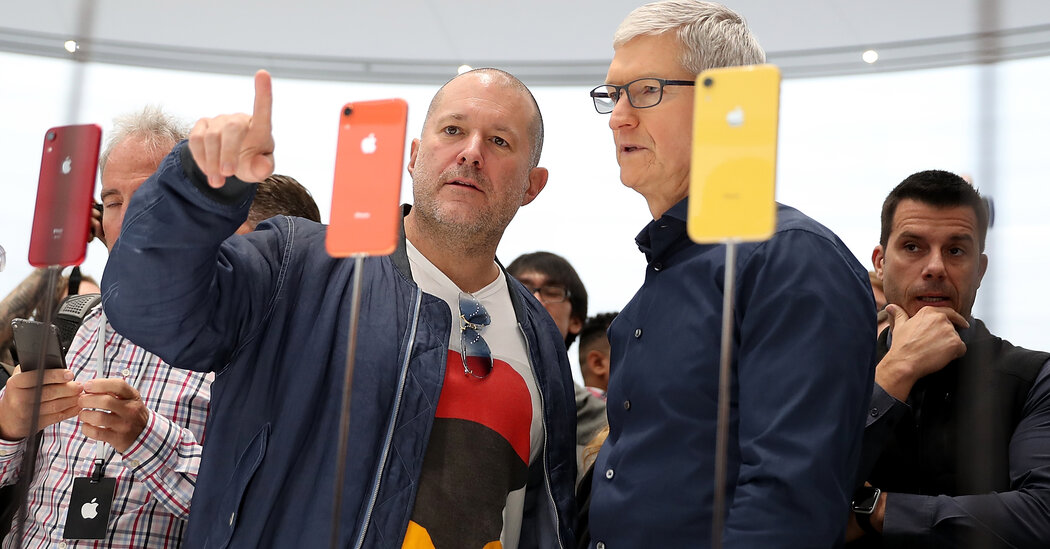
The new arrangement freed Mr. Ive from regular commutes to the company’s offices in Cupertino. He shifted from near daily product reviews to an irregular schedule when weeks would pass without weighing in. Sometimes word would spread through the studio that he was unexpectedly coming to the office. Employees compared the moments that followed with old footage of the 1920s stock market crash with papers being tossed into the air and people scurrying around in a furious rush to prepare for his arrival.
With anticipation mounting on Wall Street for a 10th-anniversary iPhone in early 2017, Mr. Ive summoned the company’s top software designers to San Francisco for a product review. A team of about 20 arrived at the city’s exclusive social club, The Battery, and began spreading out 11-by-17-inch printouts of design ideas in the club’s penthouse. They needed Mr. Ive’s approval for several features on the first iPhone with a full-screen display.
They waited that day for nearly three hours for Mr. Ive. When he finally arrived, he didn’t apologize. He reviewed their printouts and offered feedback. He then left without making final decisions. As their work stalled, many wondered, How did it come to this?
In Mr. Ive’s absence, Mr. Cook began reshaping the company in his image. He replaced the outgoing company director Mickey Drexler, the gifted marketer who built Gap and J. Crew, with James Bell, the former finance chief at Boeing. Mr. Ive was irate that a left-brained executive had supplanted one of the board’s few right-brained leaders. “He’s another one of those accountants,” he complained to a colleague.
Mr. Cook also emboldened the company’s finance department, which began auditing outside contractors. At one point, the department rejected a legitimate billing submitted by Foster + Partners, the architecture firm working closely with Mr. Ive to complete the company’s new $5 billion campus, Apple Park.
Amid those struggles, Mr. Cook began to broaden Apple’s strategy into selling more services. During a corporate retreat in 2017, Mr. Ive stepped outside to get fresh air when a newcomer to Apple named Peter Stern stepped before the company’s top leaders. Mr. Stern clicked to a slide of an X-shaped chart that showed Apple’s profit margins from sales of iPhones, iPads and Macs declining while profit margins rose from sales of software and services like its iCloud storage.
The presentation alarmed some people in the audience. It depicted a future in which Mr. Ive — and the company’s business as a product maker — would matter less and Mr. Cook’s increasing emphasis on services, like Apple Music and iCloud, would matter more.